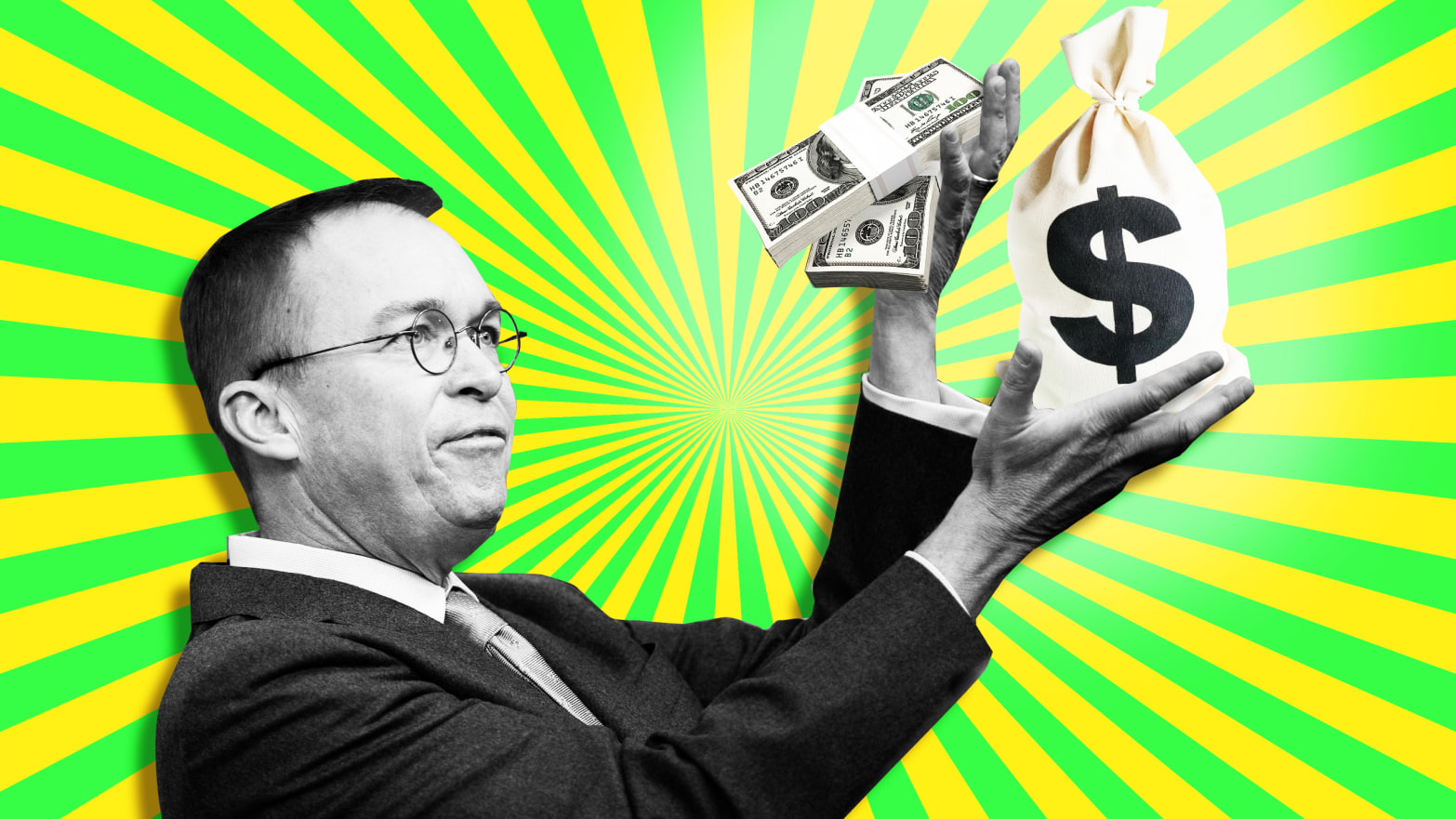When White House budget director Mick Mulvaney repaid personal loans to his state Senate campaign in September, he was digging himself out of a bit of a financial hole.
Mulvaney had loaned his South Carolina campaign thousands of dollars to cover interest payments on other six-figure loans that he used to finance his state-level campaigns before being elected to Congress in 2010.
It’s a problematic situation in which many Americans find themselves: borrowing money to pay debt service on other borrowed money. But for Mulvaney, the situation was particularly ironic: Two months after he repaid his personal loans to his state Senate campaign, he was tapped to be the nation’s top financial consumer watchdog—an office that has tried to help consumers avoid just those sorts of debt traps.
In September 2017, before he was appointed acting head of the Consumer Financial Protection Bureau, he quietly transferred $32,544 from his congressional campaign account—essentially, unspent donations to his House runs—to his old state Senate campaign.
About half of that money went toward repaying personal loans that Mulvaney had made to his state Senate campaign. The rest paid off debt owed to a South Carolina bank from which he had drawn six-figure lines of credit with interest rates as high as 6.5 percent. Beginning in 2011, Mulvaney had begun lending his state campaign money to make interest payments on those loans, one of which he refinanced in 2014.
Mulvaney’s post-congressional campaign expenditures have drawn criticism for other reasons. In March, the American Democracy Legal Fund, a Democratic-leaning legal advocacy group, filed a complaint with the Federal Election Commission alleging that Mulvaney was illegally using leftover campaign funds to pay personal expenses.
Not all of the money Mulvaney used to repay his loans and the interest on them came from run-of-the-mill South Carolinian voters. A portion of Mulvaney’s campaign funds was donated by lobbyists and business executives who have enjoyed access to the White House Office of Management and Budget director since he gained that post in February 2017, as The Daily Beast reported Friday.
Those and other donors financed four congressional runs in all. But Mulvaney never had a particularly close race. He won election and three subsequent re-election contests by no fewer than 10 percentage points—and, in 2014 and 2016, by more than 20.
So while his campaign donors were indeed funding federal political efforts, they also appear to have chipped in for travel, meals, and other miscellaneous expenses after Mulvaney joined the White House. And whether they knew it or not, they also allowed Mulvaney to dig himself out of a financial hole he’d dug for himself.

